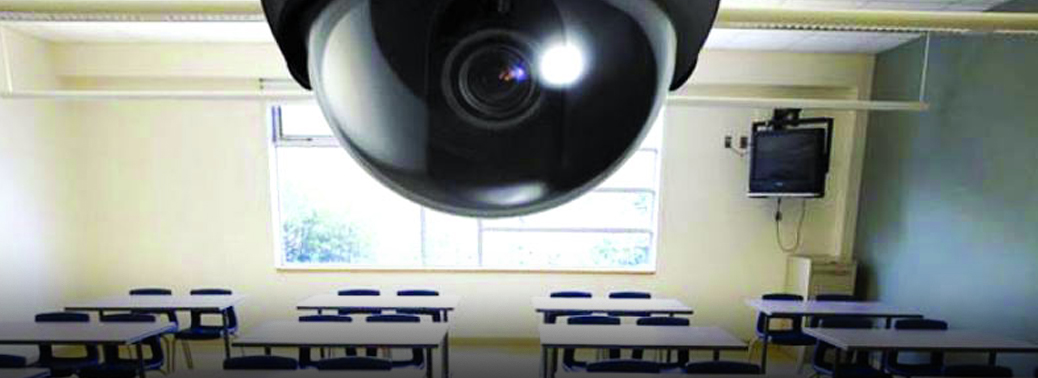CCTV IN CLASSROOMS- ANALYSIS
13, Jul 2019

Prelims level : Governance- Policies
Mains level : GS2 - Welfare schemes for vulnerable sections of the population by the Centre and States and the performance of these schemes; mechanisms, laws, institutions and Bodies constituted for the protection and betterment of these vulnerable sections.
- Context– Project to install CCTV cameras inside all classrooms in Delhi state schools.
Delhi Government Stand:
Empowering Parents
- In private schools, parents are empowered by their own education and economic leverage due to the fees they pay. Parental oversight has been the bedrock of effective school management. CCTV surveillance would bring empowerment to parents.
Parent Participation
- School Management Committees (SMCs), parent bodies mandated by the Right to Education Act. They have been empowered to monitor and supervise basic deliverables of schools, such as teacher attendance, healthy mid-day meals, clean washrooms, drinking water, etc. The CCTV in classrooms project is the next step towards increasing accountability of schools.
Accountability:
- By sharing feeds with parents, it is actually ensuring that the crores of public money invested into CCTVs are not wasted.
- Often, CCTVs fail to serve their purpose for lack of motivated monitoring.
- Outsourcing of the monitoring to an invested stakeholder like parents is actually a smart innovation.
Child Care:
- The CCTV feeds can aid parents to identify several problems their children may be facing, including bullying, corporal punishment, inadequate attention spans, teacher absenteeism and even student truancy. It will empower them to not just raise their children better but also to ask the right questions to their child’s school.
Issue of Privacy Breach
- Classrooms cannot be classified as private by any stretch of imagination.
- feed being provided to parents is highly restricted.
- Only the feed for their own children will be provided to parents.
- The feed does not include audio, and can only be accessed live.
Deterrence for Crimes
- If CCTVs can be deterrents to crime outside schools, they can be deterrents within too.
Argument Against CCTV Installation in Schools:
The Aim of Education Isn’t Just Disciplinary:
- While a school is meant to teach discipline, it is also the space where students can make mistakes and subsequently learn from them.
- Creating panopticons inside schools instils fear, not values.
Classrooms Aren’t Public Spaces Either:
- Classrooms cannot be classified as private.
- However, schools are not as public as a footpath.
- The expectation of relative privacy is what allows students the freedom to express themselves, make mistakes, and inculcate creativity and imagination.
- The Delhi government cannot assume that constant surveillance of every activity will improve the learning environment.
Lack of digital infrastructure:
- Internet penetration in urban India still stands at 64.84%, including multi-SIM usage. In cases where parents don’t have smartphones and internet access, what does the government intend to do?
Phone sharing:
- Shared access to a phone is a common habit, and the Delhi government has still not clarified, despite our repeated queries, how they intend to verify a parent’s identity on the DGS Live app.
Access to Videos:
- Creating a massive repository of video footage of children is a phenomenally bad idea, and a violation of their privacy.
- In the absence of any legislative and judicial oversight, it can be easily abused.
Conclusion:
- There should be proper white paper published by Delhi Government regarding CCTV installation so that public understands the motives and undue activity can be restricted.






